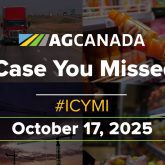Debate over funding schools in Alberta is heating up now that a provincial election has been called.
Rural education advocates hope that whoever forms the next government will review current funding formulas, noting schools in small communities are losing funds even as they need adequate amounts to remain viable.
“A school is a school is a school,” said Holly Bilton, chair of the Rural Caucus of Alberta School Boards, following the Alberta Rural Education Symposium March 3-6 in Edmonton, before the election was called March 19.
Read Also

Feds propose overhaul of chronic wasting disease control program
Chronic Wasting disease control program getting updated by Canadian Food Inspection Agency with feedback encouraged from producers.
“No matter urban or rural, you still have to heat the school, put the lights on and make sure the roof doesn’t leak.”
Bilton said Alberta largely funds schools based on the student population and that is where the problem lies. Rural schools often receive lower funding because of the funding formula and their funds can be reduced when student numbers dwindle.
She said the model needs to change, possibly creating a separate pot of funds solely for rural schools.
“We need to find a way to make it more equitable for more of Alberta’s kids,” she said. “We really need a government that’s going to go back and look at a funding framework.”
Education Minister David Eggen told delegates at the symposium that an NDP government would begin looking at a new formula if it forms government this spring.
“I think time is up on the way that we’ve been doing it so far,” he said.
Greg Jeffery, president of the Alberta Teachers Association, said he would look forward to a review of education funding.
He said there have been cases of schools being unable to attract and retain teaching staff because of the unfavourable funding formula.
“I think a review is a good sign,” he said. “It’s something teachers in rural communities have been asking for.”
However, education funding could be frozen if the United Conservative Party forms government.
UCP education critic Mark Smith indicated at the symposium a UCP government wouldn’t likely offer more cash for education until the economy turns around.
“If we can grow the economy at three percent and start to balance the budget, then we can start to have a conversation about how to move forward in education,” Smith told the Edmonton Journal.
“It’s not that we have a philosophical problem with funding inclusion. But at the end of the day, there is a fiscal responsibility we have to the people of the province.”
The UCP said in an email that a strong and growing economy is necessary to support public services, adding details of its education platform will soon be released.
Jeffery said a funding freeze would largely affect growing urban schools because no funds would be made available to new students.
He isn’t sure if a freeze would affect rural schools, given some student populations are declining.
Premier Rachel Notley, however, took aim at the potential freeze, arguing Alberta expects 60,000 new students in four years and they require funding.
“That’s 60,000 kids entering with not a new teacher being hired,” she told reporters at the symposium.
Bilton said rural schools also face transportation issues, adding it’s difficult to get allied and mental health professionals into their communities.
“We want professional health-care workers to stay in the community,” she said. “There are lots of ideas and solutions. We’ve been asking to work with the minister of health to see what they can do.”















